EU allows sale of more GM food crops for livestock
- Published
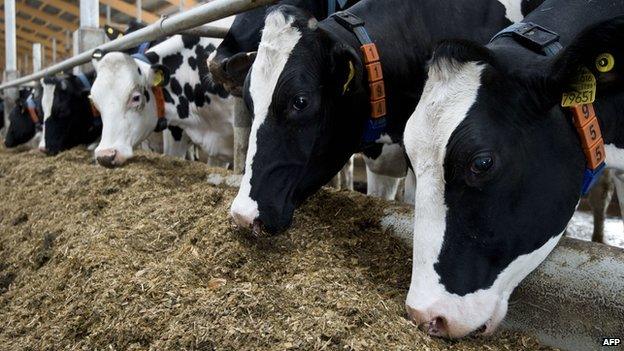
Cows on a German farm: Much of the soya in Europe's imported feed is GM
The EU has approved the sale of 17 more genetically modified (GM) crops - mostly used in animal feed - and two types of GM carnation.
The European Commission's authorisation process is controversial. The latest approvals were condemned by Green MEPs and Greenpeace environmentalists.
Fifty-eight GM crops are already used in food and animal feed in the EU. But cultivation is restricted to just one - a type of maize.
US biotech firms want the rules eased.
The 17 new crop authorisations consist of: soybean (five types), cotton (seven types), maize (three types) and oilseed rape (two types). Cottonseed meal and oil is used in animal feed.
GM crops are used widely in the US, South America and Asia, but many Europeans are wary of their impact on health and wildlife.
In the EU, 60% of animal feed is imported. The protein-rich soya in that feed comes overwhelmingly from countries that plant GM soybeans - Brazil, Argentina and the US, the Commission says, external.
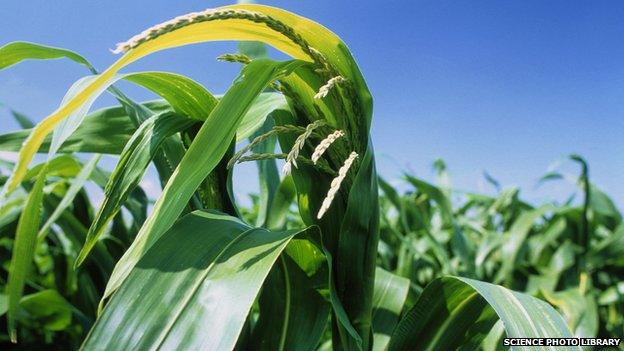
GM maize: Bio-engineering can boost a crop's defences against pests or a dry climate
Trade tensions
GM in food is one of the toughest issues at the EU-US talks on a free trade deal, known as TTIP.
Green MEP Bart Staes, a food safety specialist, accused the Commission of ignoring widespread opposition to genetically modified organisms (GMOs) among EU citizens.
"This gung-ho approach to GMOs also has to be seen in the context of the EU-US TTIP negotiations and the long-running US campaign to force their GMOs on to the EU market," he said.
On Wednesday, the Commission proposed a new law allowing individual EU countries to restrict or ban imported GM crops, even if those crops have been authorised EU-wide by the European Food Safety Authority (Efsa).
A country would have to justify its opt-out from a certain GM crop type, stating specific national or regional grounds for the restriction.
Social or environmental impact could be cited as justification for a national ban, rather than purely health concerns.
US Trade Representative Michael Froman said the proposal left the US "very disappointed" and he called it "hard to reconcile with the EU's international obligations".
The only GM crop cultivated in the EU - Monsanto's maize variety MON 810 - is banned in several EU countries. Spain is by far the biggest grower of MON 810 in Europe, but the crop accounts for just 1.56% of the EU's total maize-growing area.
The UK government is among several countries, including Spain and Sweden, calling for the EU's GM rules to be eased.
However, there is strong opposition in many other countries, including in Austria, France and Germany.
- Published26 February 2015
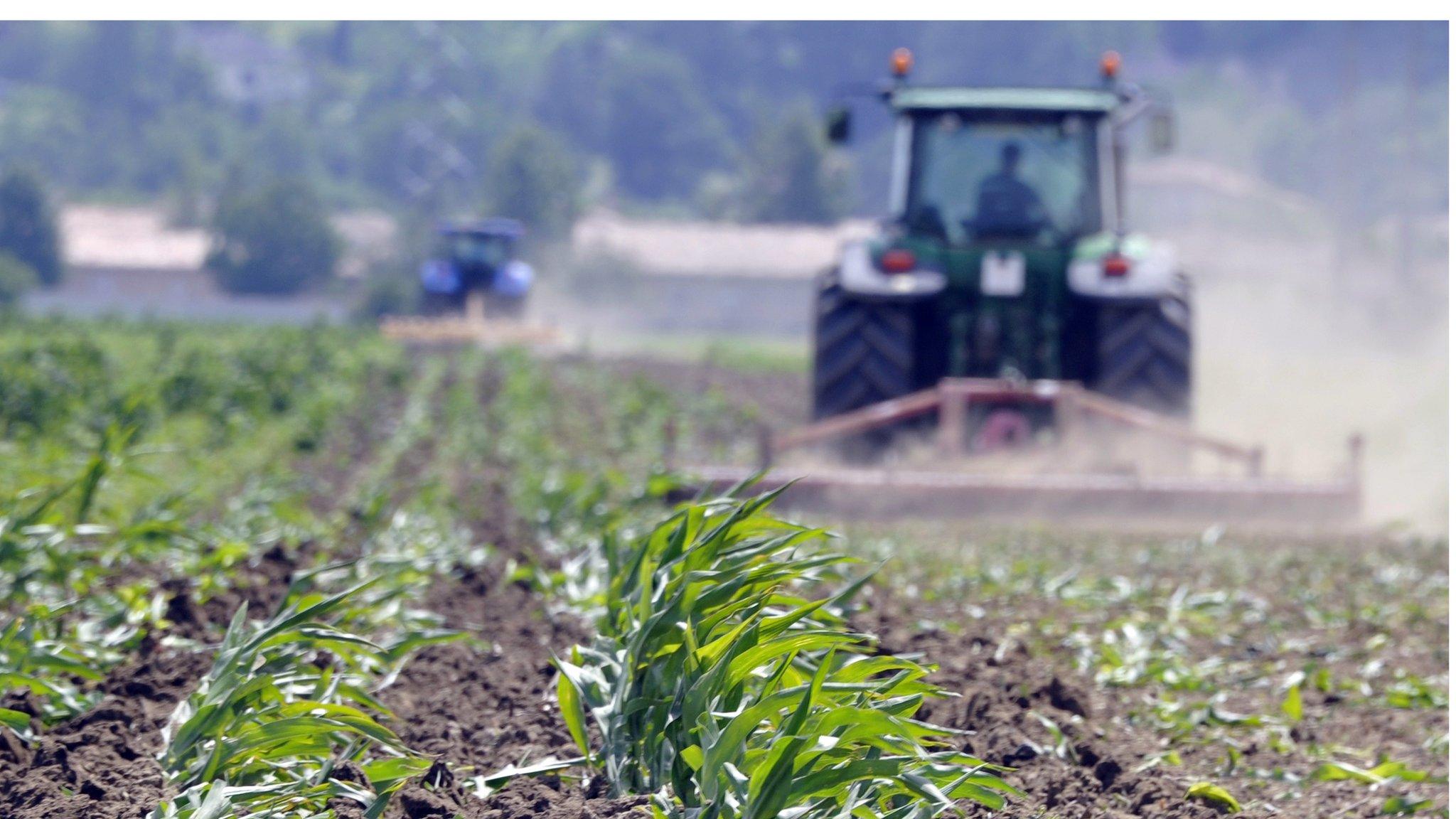
- Published13 January 2015
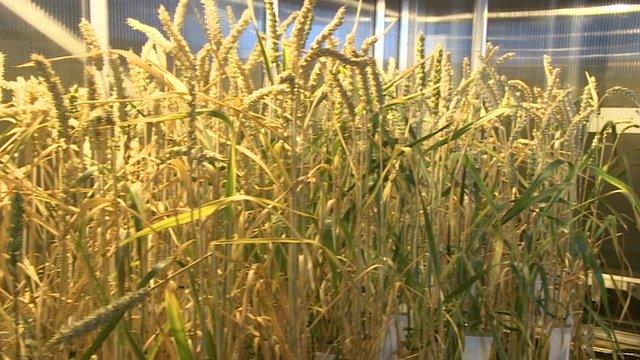
- Published18 July 2013
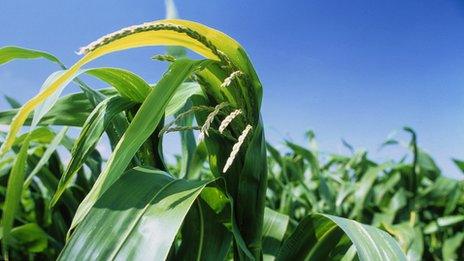
- Published20 June 2013
